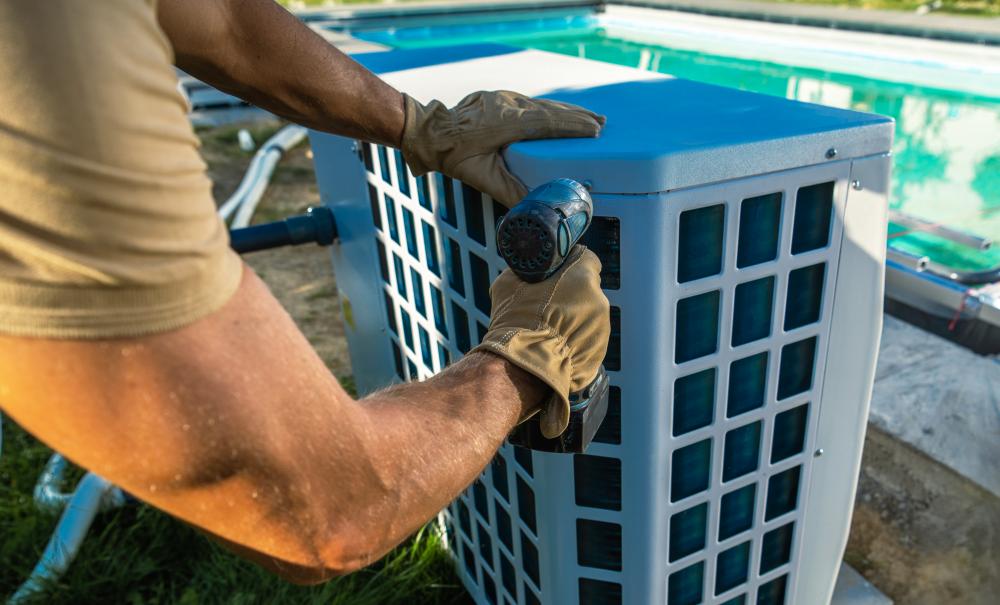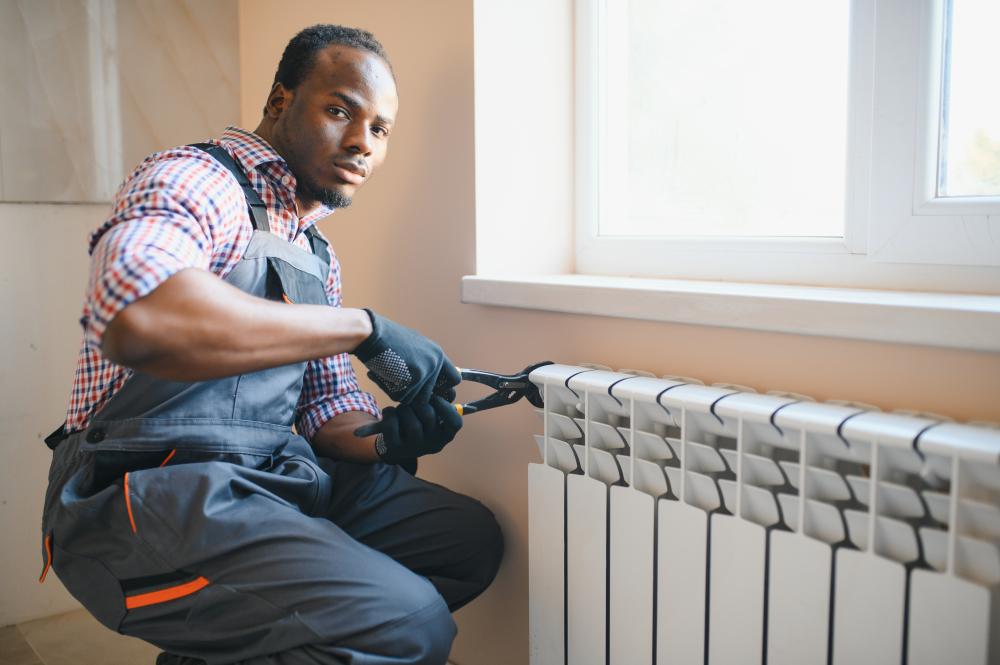Hvac Extended Warranty

The Importance of an HVAC Extended Warranty
In the hustle and bustle of maintaining home systems, HVAC units often become the unsung heroes, diligently working behind the scenes to keep interiors comfortable. An HVAC extended warranty is a vital safety net, providing peace of mind and financial protection against unexpected repair costs. Without this coverage, homeowners may face hefty expenses when critical components like compressors or heat exchangers fail unexpectedly. By investing in an extended warranty, individuals can safeguard their budgets while ensuring that HVAC systems continue to perform optimally.
From a practical standpoint, an HVAC extended warranty can be likened to an insurance policy for your heating and cooling systems. It covers repairs and replacements beyond the standard warranty period, thus offering homeowners a longer window of protection. This commitment to extending coverage demonstrates foresight, allowing homeowners to enjoy uninterrupted comfort and efficiency in their living spaces. This becomes particularly crucial in older units where the probability of breakdowns increases over time.
Benefits of HVAC Extended Warranty
One of the standout benefits of an HVAC extended warranty is the significant cost savings it offers. Repairing or replacing HVAC components can quickly spiral into a substantial financial burden, but with an extended warranty, these costs are often absorbed by the warranty provider. This financial cushion is particularly beneficial in regions with extreme weather, where HVAC systems run for extended periods and are prone to wear and tear.
Moreover, having an HVAC extended warranty often means gaining access to a network of certified service technicians, ensuring that repairs and maintenance are carried out by qualified professionals. These experts have specialized knowledge, enabling them to diagnose issues efficiently and provide accurate solutions, thus restoring system functionality without delay. This professional attention not only prolongs the life of the unit but also enhances its performance, contributing to better energy efficiency and reduced utility bills.
Additionally, with an extended warranty, homeowners often enjoy priority service, eliminating long waits during peak seasons. When a heating system fails in the dead of winter, or an air conditioner breaks down during a summer heatwave, immediate service becomes a necessity rather than a luxury. Extended warranties often provide the reassurance that these urgent needs will be met swiftly.
Considerations Before Purchasing an Extended Warranty
While the benefits of an HVAC extended warranty are clear, there are several factors that homeowners should consider before making a purchase. First, it's important to evaluate the condition and age of the current HVAC system. For newer units, the manufacturer's warranty might still offer sufficient coverage, while older systems could benefit more significantly from an extended warranty.
The terms and conditions of the extended warranty must be scrutinized to ensure they meet the homeowner's specific needs. Exclusions, coverage caps, and service fees can vary widely between providers, and understanding these nuances is crucial. Homeowners should be wary of extended warranties with overly restrictive conditions that could limit their effectiveness when needed most.
Furthermore, partnering with a reputable service provider, such as Home Alliance, ensures that the warranty experience aligns with high standards of professionalism and customer satisfaction. The peace of mind that comes with knowing that skilled technicians are just a phone call away provides an added layer of security, making an HVAC extended warranty a worthwhile investment.
Industry Perspectives on HVAC Warranties
Industry professionals universally concur that an HVAC extended warranty is an excellent addition to any homeowner's arsenal, particularly in today's market where HVAC innovations constantly evolve. They often highlight the importance of considering warranty options at the time of purchasing a new HVAC system, as this can offer bundled savings and comprehensive protection.
Some professionals advise incorporating regular maintenance schedules to take full advantage of an HVAC extended warranty. Routine inspections and timely servicing can prevent minor issues from escalating into major, costly problems and ensure compliance with warranty terms. They emphasize the significance of this proactive approach, which is a hallmark of long-term cost management in home maintenance.
An extended warranty also allows for adaptability in technological advancements. As energy efficiency regulations evolve and new technologies emerge, having an active warranty can make it easier to upgrade or modify existing systems to comply with new standards. Staying informed about these changes is crucial for homeowners who wish to leverage their warranties to future-proof their homes against rising energy costs and environmental concerns.
Ultimately, the choice to invest in an HVAC extended warranty is a personal decision. However, when weighed against the potential pitfalls of not having one, such as unexpected breakdowns and inflated repair costs, it becomes a decision grounded in pragmatism and foresight. This safety measure transforms mere homeownership into an experience marked by preparedness and peace of mind.

Why HVAC Home Warranty Matters
The concept of an HVAC home warranty may not be the first thing that comes to mind when considering home maintenance, but it can be a critical lifesaver when unexpected issues arise. With HVAC systems being one of the most expensive and essential components of any home, ensuring their efficient and uninterrupted operation is crucial. A malfunctioning HVAC system can lead to discomfort and even potential health hazards, particularly in extreme weather conditions.
Many homeowners are often unaware that their standard home insurance does not cover HVAC repairs or replacements, which is where an HVAC home warranty becomes invaluable. These warranties serve as a protective shield, providing coverage for costly repairs or even full system replacements. For a monthly or annual premium, homeowners have peace of mind knowing they won't be blindsided by sudden HVAC expenses.
It's worth noting that while an HVAC home warranty offers a significant safety net, it's crucial to choose a provider with a reputable track record. This is where organizations like Home Alliance come into play, offering not only comprehensive HVAC services but also reliable warranty coverage that ensures the longevity and performance of home systems.
Various Perspectives on HVAC Home Warranty
When discussing HVAC home warranty, perspectives vary widely between first-time homeowners and experienced property investors. First-time homeowners often appreciate the structured simplicity that a warranty provides, sparing them the stress of juggling emergency repairs with limited experience. Having a contract in hand gives them a structured approach to any malfunctions, with professional guidance just a phone call away.
Conversely, seasoned property investors might emphasize the financial benefits of HVAC home warranty, recognizing it as a strategic asset in minimizing overall maintenance costs. These investors understand that while a warranty may involve an upfront cost, the potential savings on major repairs or replacements far outweigh the initial investment. As such, they incorporate warranties as part of their long-term property management strategy.
Professionals within the HVAC industry also bring a unique take, advocating for regular maintenance in conjunction with warranty coverage. They understand the nuts and bolts of HVAC systems, emphasizing that while warranties can cover unexpected breakdowns, routine maintenance is key to the system's efficiency and lifespan. This synergy between preventative care and warranty protection exemplifies a holistic approach to home maintenance.
How to Optimize Your HVAC Home Warranty
For homeowners keen on making the most of their HVAC home warranty, understanding the terms and conditions is paramount. An often-overlooked aspect is the requirement for regular maintenance, which some warranties stipulate to remain valid. Homeowners should schedule routine inspections and cleanings, reducing the chance of costly repairs and aligning with warranty stipulations.
Evaluating the scope of coverage is another crucial step in optimizing an HVAC home warranty. Not all warranties are created equal, and identifying coverage limitations can prevent future frustrations. Home Alliance offers transparency in what their warranties cover, making it easier for homeowners to pinpoint any gaps or additional coverage they might need.
Another insider tip is to utilize the expertise of trusted providers like Home Alliance, whose professional insight can guide homeowners through warranty claims efficiently. Building a relationship with a reputable service provider ensures quicker response times and more reliable service when warranty claims are made.
Lastly, community forums and homeowner networks can offer practical insights into maximizing the utility of an HVAC home warranty. Personal stories of experiences with specific service providers can provide valuable foresight and equip homeowners to make informed decisions.
Exploring the World of HVAC Warranty Companies
The realm of HVAC warranty companies is often navigated by individuals seeking peace of mind and protection against unexpected costs. These companies provide specialized insurance policies for HVAC systems, promising repair or replacement for covered components. However, understanding the scope and limitations of these warranties is essential for potential policyholders.
Typically, these warranties cover critical components such as compressors, evaporator coils, and thermostats. Some policies may include labor costs, while others might not, which is a pivotal aspect to consider. It's a safety net that some homeowners find indispensable, especially for older systems that might be prone to breakdowns.
One key perspective often overlooked is the importance of carefully scrutinizing the fine print. HVAC warranty companies may have specific terms about annual maintenance, often requiring professional inspections to keep the policy valid. This clause not only ensures the proper functioning of the system but also reflects a proactive approach to preventing issues.
Home Alliance's Approach to HVAC Warranties
Home Alliance stands out in the HVAC service industry, not just for their expertise but also through their comprehensive service offerings. While primarily known for their exceptional HVAC repair and maintenance solutions, Home Alliance also provides guidance on navigating the complex world of HVAC warranty companies. Their professional technicians often share insights based on years of field experience, helping customers make informed decisions.
Being a trusted partner, Home Alliance emphasizes the importance of understanding the terms of HVAC warranties. They consistently educate clients on the nuances of various policies, highlighting conditions that may affect the coverage, such as the age and model of the HVAC unit.
Customers of Home Alliance frequently express satisfaction with the clarity and support they receive. Leveraging this knowledge, homeowners can choose warranties that align with their specific needs and budget constraints, ensuring they are adequately protected against unexpected repairs.
Moreover, the Home Alliance team also assists in fulfilling the maintenance requirements often stipulated by HVAC warranty companies. This not only preserves the validity of the warranties but also extends the lifespan of the HVAC systems through scheduled upkeep and timely repairs.
Making Smart Choices with HVAC Warranties
When considering HVAC warranty companies, it is imperative to assess various factors to make a well-rounded decision. The longevity of a company's operations and its reputation are significant indicators of reliability and customer satisfaction. A company that's been in the industry for many years often signifies stability and trustworthiness, something that can't be overlooked.
Another critical aspect is evaluating the specific needs of your HVAC system. Newer systems may not require extensive coverage, while older models could benefit from more comprehensive warranties. Assess the common points of failure for your specific unit, and ensure the warranty offers protection for these crucial components.
Lastly, personal testimonials and reviews play a vital role in shaping one's decision on HVAC warranty companies. Engaging with other homeowners' experiences can provide deeper insights into the practical aspects of dealing with these companies. It's invaluable to learn from their successes and pitfalls, equipping potential customers with the information needed to choose wisely.

Are HVAC extended warranties worth it?
Absolutely, and here's why: an HVAC extended warranty can be a valuable investment for many homeowners, providing a safety net against unexpected repair costs that can arise as your system ages. Think of it as an insurance policy for your HVAC system, offering peace of mind and financial protection. For example, if a critical component like a compressor needs replacing, the costs can quickly become overwhelming without a warranty. Many of our clients at Home Alliance have found that the cost of an extended warranty pales in comparison to the savings on major repairs.
That said, it's crucial to evaluate the age and condition of your current HVAC system. If your system is relatively new and still under a manufacturer's warranty, you might not need extensive additional coverage just yet. However, for older systems, an extended warranty can be particularly beneficial. I'd encourage you to think about how long you plan to stay in your current home and the climate you live in, as these factors can also influence the decision.
If you're mulling over this, consider the potential costs associated with breakdowns and how a warranty might fit into your long-term home maintenance strategy. What do you think will offer you the most peace of mind?
What is the $5000 rule for HVAC?
The $5000 rule is a straightforward guideline to help homeowners decide whether to repair or replace their HVAC system. Here's how it works: multiply the age of your unit by the estimated repair cost. If that number exceeds $5000, it's often more cost-effective to replace the system rather than repair it. For example, if you have a 10-year-old unit with a $600 repair quote, that's $6000 when multiplied, suggesting a replacement might be a better investment.
This rule helps you balance the cost of repairs against the potential benefits of a new, energy-efficient system. While it's not a hard-and-fast rule, it provides a useful starting point. At Home Alliance, we often discuss this rule with our clients during consultations to help them make informed, financially sound decisions. Have you thought about the long-term savings a new system might bring?
How much does a 5 year extended warranty cost?
The cost of a 5-year extended warranty for an HVAC system can vary widely depending on several factors, including the brand, type, and age of the unit, as well as the provider of the warranty. Typically, you might expect to pay anywhere from $200 to $1500 or more. Some premium warranties may cost more, especially if they cover a wide range of components and labor.
At Home Alliance, we emphasize the importance of not just looking at the price, but also what the warranty covers. Does it include key parts like the compressor and heat exchanger? Is labor covered? These details can significantly impact the overall value of the warranty. It's always wise to get quotes from multiple providers and compare the benefits each offers. Have you considered how often your system has needed repairs in the past and how that might inform your choice?
Who has the best warranty on HVAC systems?
The "best" warranty can depend on your specific needs and priorities. Many major HVAC manufacturers, like Trane, Carrier, and Lennox, offer strong warranties that can be extended for additional coverage. These warranties often cover parts for up to 10 years, but labor coverage varies, so it's important to scrutinize the details.
At Home Alliance, we often guide clients through the selection process by focusing on the reputation of the manufacturer and the comprehensiveness of the coverage. Some manufacturers offer additional incentives, like extended coverage if their systems are professionally installed and maintained. Remember, a warranty is only as good as the service network backing it up, so choosing a trusted service provider like Home Alliance can make a real difference. What specific aspects are you looking for in an HVAC warranty?
How does an HVAC home warranty differ from an extended warranty?
An HVAC home warranty generally covers a broader range of appliances and systems, not just the HVAC unit, under one package. It's part of a home warranty plan that might include other appliances like dishwashers and water heaters. These warranties are typically offered by third-party companies and require an annual fee with service call charges.
In contrast, an extended warranty is more focused, specifically designed to extend the coverage period of a manufacturer's warranty on your HVAC unit. It's often offered by the manufacturer or a specialized provider and covers specific parts and labor for repairs. At Home Alliance, we sometimes see homeowners prefer a comprehensive home warranty for convenience, while others value the detailed coverage of an extended warranty for their HVAC system alone. Which coverage suits your lifestyle and home maintenance approach best?
What should I consider when choosing an HVAC warranty company?
When choosing an HVAC warranty company, consider the scope of coverage, reputation, and terms of the warranty. Look at the specific components covered and whether labor costs are included. It's crucial to read the fine print to understand any exclusions or limitations.
At Home Alliance, we encourage homeowners to consider the company's reputation, customer service quality, and network of authorized technicians. A reliable company should provide prompt service and have a track record of satisfied customers. Additionally, consider any maintenance requirements needed to keep the warranty valid. Personal recommendations and online reviews can also be invaluable in making this choice. How important is the peace of mind, knowing that help is just a call away?
Resources
- U.S. Department of Energy - The U.S. Department of Energy provides valuable information on energy efficiency, including HVAC systems.
- Consumer Reports - Consumer Reports offers unbiased reviews and ratings on a variety of products, including HVAC warranties.
- U.S. Environmental Protection Agency - The EPA provides information on environmentally friendly HVAC options and regulations.
- Angie's List - Angie's List offers reviews and ratings of HVAC warranty companies and service providers.
- Better Business Bureau - The BBB provides insights into the reputation and customer satisfaction of HVAC warranty companies.

